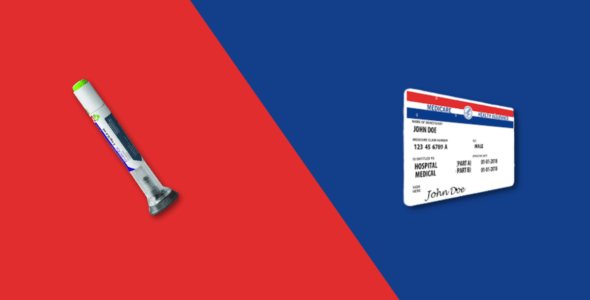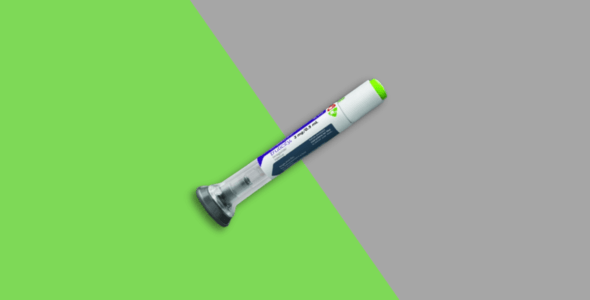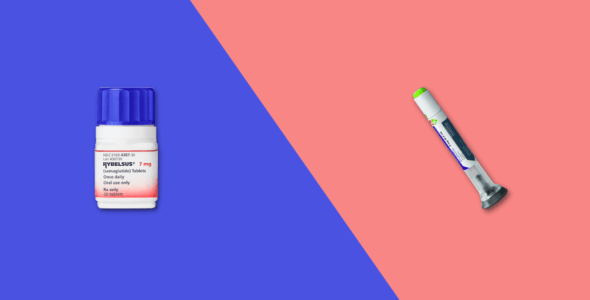How much is Trulicity without insurance
Table of contents
Trulicity can be a very expensive prescription medication without insurance. The list price of Trulicity is $886.36 per month without insurance, according to the manufacturer’s website. Trulicity prices may vary depending on the pharmacy you buy from.
Trulicity (dulaglutide), manufactured by Lilly, is a once-weekly injectable medication used to treat type 2 diabetes. Trulicity is a glucagon-like peptide-1 (GLP-1) receptor agonist, which means it helps stimulate insulin production and decrease blood sugar levels. If you have type 2 diabetes, you may be able to lower your blood sugar levels with Trulicity. In addition, Trulicity has shown that it can reduce the risk of major cardiovascular events, such as heart attack and stroke, so it is also FDA-approved for the treatment of Type 2 diabetes and heart disease.
Trulicity is usually taken once weekly, and the dosage may be increased after four weeks. The starting dose is typically 0.75 mg, but your doctor will determine the right dosage for you based on your blood sugar levels and how well you respond to the medication. Trulicity is injected under the skin, usually in the thigh, abdomen, or upper arm.
Some common side effects of Trulicity include nausea, vomiting, diarrhea, and skin reactions at the injection site. In rare cases, more serious side effects can occur, such as heart problems, pancreatitis, and thyroid tumors. It’s important to speak with your doctor if you experience any troubling or unusual side effects while taking Trulicity. Learn more about Trulicity side effects and how to avoid them.
If you’re looking for a way to lower your blood sugar levels without insurance, Trulicity may be an option for you. However, it’s important to talk to your doctor about how Trulicity can best help manage your type 2 diabetes symptoms and whether it’s the right treatment option for you.
There is no generic version of Trulicity available at this time, so you may need to pay the full list price for Trulicity if you do not have insurance.
Is Trulicity covered by my insurance plan?
Trulicity was initially approved by the FDA (U.S. Food and Drug Administration) in 2014 as a treatment for type 2 diabetes. It is not approved for type 1 diabetes. While Trulicity is often covered by many insurance plans, coverage varies depending on your plan and provider. Contact your health insurance company to verify coverage and reimbursement for Trulicity before starting treatment.
Some commercial insurance plans, Medicare Part D plans, and Medicare Advantage may cover Trulicity. Most health insurance companies will require that you obtain prior authorization or may prefer that you use an alternative drug before covering Trulicity for diabetes.
Get your Trulicity medication for only $49 per month
Get StartedHow much does Trulicity cost without insurance?
Lilly, the manufacturer of Trulicity, states on its website that the list price (cash price without insurance) for Trulicity is $886.36 per month. That works out to around $222 per week, depending on the dose prescribed by your healthcare provider.
If you do not have insurance or if Trulicity is not covered by your health insurance plan, the cost of Trulicity can be expensive and there is no generic Trulicity available at this time so you will need to purchase the brand-name medication. Fortunately, some options are available that can help you save on the cost of Trulicity.
Eli Lilly, the manufacturer of Trulicity, offers a savings card that can reduce the cost of your Trulicity prescription. You may be eligible to pay as little as $25 for 12 Trulicity pens with the Trulicity Savings Card. If the card was emailed to you, it does not need to be activated. However, if the card was given to you by your doctor, it needs to be activated. The manufacturer also states that patients must have insurance coverage for Trulicity through their commercial prescription drug insurance coverage to pay as little as $25 for up to 12 pens of Trulicity, and this offer is also subject to a maximum monthly limit of $150, as well as a separate maximum annual limit of $1800. The eligibility requirements may change so always check for the latest guidelines on Lilly’s website.
Do not take any over-the-counter medications or supplements as a substitute for prescription drugs to control blood sugar levels.
Compare Trulicity alternative prices
| Brand-drug name (chemical name) | Average weekly cost |
|---|---|
| Ozempic (semaglutide) | $200 average weekly cost (1 dose weekly) |
| Bydureon BCise (exenatide) | $200 average weekly cost (1 dose weekly) |
| Byetta (exenatide) | $190 average weekly cost (2 doses daily) |
| Victoza (liraglutide) | $210-310 weekly cost (1 dose daily) |
| Rybelsus (semaglutide) | $310 weekly cost (1 dose daily) |
| Adlyxin (lixisenatide) | $165 weekly cost (1 dose daily) |
Note: Prices are provided as estimates only and are subject to change.
RELATED: Ozempic vs Trulicity
How to save on Trulicity without insurance
With an estimated annual cost of around $10,600, Trulicity can be a very expensive medication, especially for uninsured individuals. Fortunately, there are several options available to save money. Here are some tips on how you can save money on Trulicity:
- Check if you have insurance drug coverage for Trulicity. If you do, your medical insurance may help cover some or all of the costs for this prescription drug if it is covered under the approved prescription drug formulary.
- Research prices at multiple local pharmacies for the best price including mail-order pharmacies that ship to your location. A study conducted by Consumer Reports estimates that the retail prices for medications can vary by as much as 10 times from one pharmacy to another, even in the same city.
- Try using a Trulicity manufacturer coupon or prescription drug discount card.
- Get a health insurance plan that covers the cost of Trulicity. The insurance premium or co-pay costs will likely be a lot less than the cash price of Trulicity. Make sure to verify that the health insurance plan covers the cost of Trulicity for diabetes prior to signing up.
- Check if you qualify for enrollment in any patient assistance programs offered by the manufacturer or other organizations. Patient assistance programs provide free or discounted drugs to people who cannot afford them.
- You may also be eligible for Extra Help. Extra Help is a program from the Social Security Administration that helps people with limited incomes and resources pay for their Medicare prescription drug costs. To see if you qualify for Extra Help, visit the Social Security Administration’s website or call 1-800-772-1213.
- Enroll in Medicaid if you are eligible. Medicaid is intended to help eligible individuals who are low-income and cannot afford their medications. Some Medicaid plans may cover the cost of Trulicity.
- Get medical advice from your healthcare provider about alternative treatment options. Trulicity is a prescription drug that belongs to a drug classification called GLP-1 agonists which are used to treat type 2 diabetes. There are several lower-cost alternative drugs that your healthcare provider may consider to help you save money on your treatment.
Medically reviewed
A medical professional has reviewed this article.


Jamie Winn, PharmD
Jamie Winn, PharmD
Dr. Jamie Winn received his Doctor of Pharmacy in 2002 from the University of South Carolina College of Pharmacy, Columbia, SC. Jamie is a medical reviewer for NiceRx.










